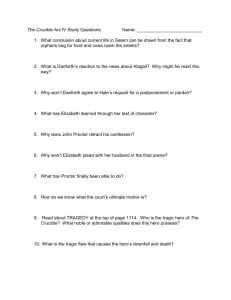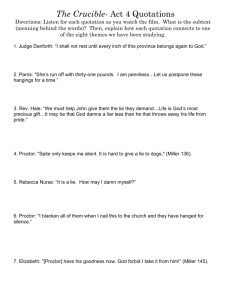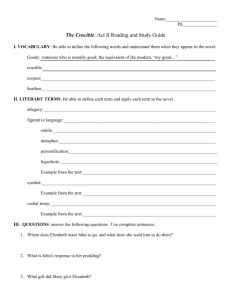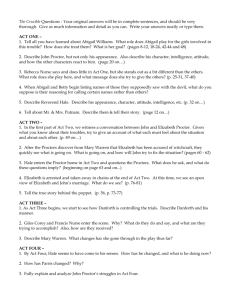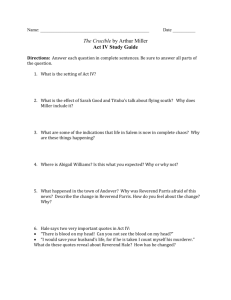The Crucible
advertisement
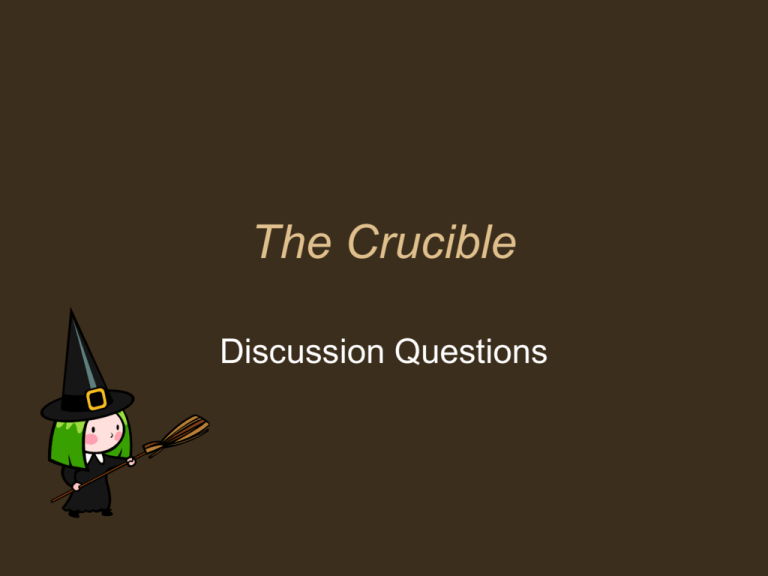
The Crucible Discussion Questions Act I 1. 2. 3. 4. 5. 6. 7. What were some of the frustration that caused the persecution of neighbors? How was the Puritan’s preservation of community a paradox? Why is Thomas Putnam angry at the town? How does this affect his involvement in the Witch Trials? Miller says that Proctor has "come to regard himself as a kind of fraud." What does that mean? Why does Goody Putnam seek Tituba’s help? Why does she so easily believe in witchcraft? What is diabolism? Why does Miller connect Satan and the “Red Hell”? A crucible is defined as 1) a container that can resist great heat and 2) a severe test or trial of faith and beliefs. In the play the test is designed to bring about change or reveal an individual’s true character. With that in mind, how do you think the characters will be tested? Act 2 1. What is the symbolism of the rag doll Mary Warren makes for Elizabeth? 2. What is the significance of Mary Warren’s description of her feelings toward Sarah Good? 3. Why is Mary Warren’s statement, “The Devil’s loose in Salem, Mr. Proctor; we must discover where he’s hiding!” ironic and prophetic? 4. Elizabeth Proctor says, “There is a promise made in any bed.” What is the promise that she talks about? 5. What were the real reasons why Rebecca Nurse, Martha Corey, and Elizabeth Proctor were accused of witchcraft Act 3 1. 2. 3. 4. 5. What proofs are offered in Act 3 that show the accusations of witchcraft are fraudulent? According to Danforth, who are the only witnesses of witchcraft? Why doesn’t Giles give the name of witness who heard Putnam influence his daughter to accuse others of witchcraft? How does Danforth pressure Mary Warren to confess witchcraft? What are the implications if Danforth accepts Mary Warren’s deposition? What is the climax of the play? At the end of Act 3, Proctor says “God is dead!” How does this relate to Miller’s thematic development? Act 4 1. How do the proposed hangings of Rebecca Nurse and John Proctor differ from the past executions? 2. Why does Danforth refuse to postpone the hangings? 3. What is the significance of John Proctor’s tearing up of his confession? 4. Why doesn’t Elizabeth Proctor attempt to save her husband from death? 5. Who is the tragic hero of the play? Why?

